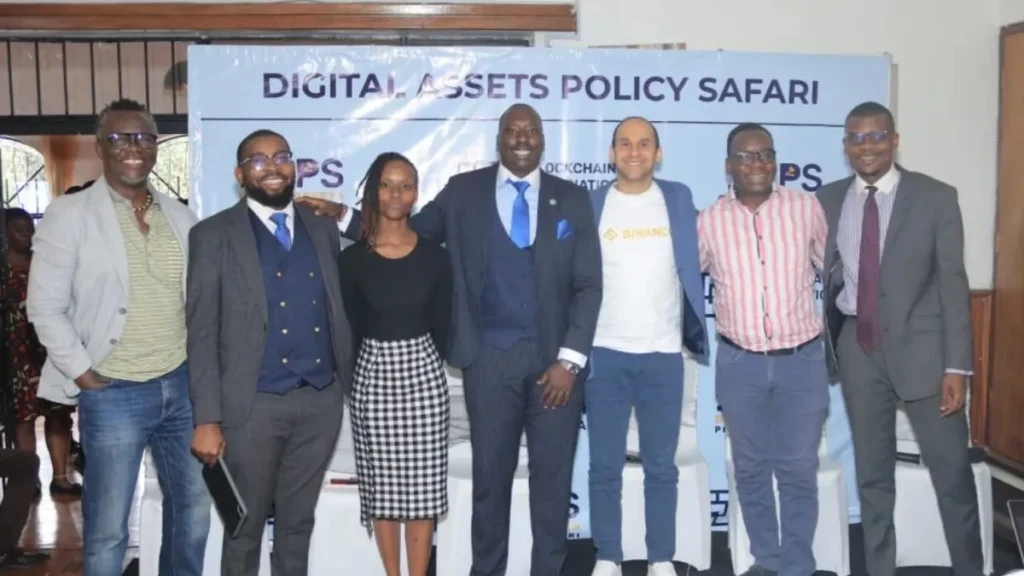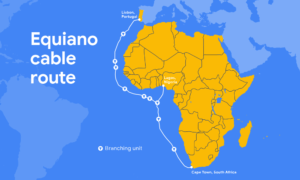- The Blockchain Association of Kenya (BAK) unveils Kenya’s inaugural community-driven Virtual Assets Service Provider (VASP) draft bill.
- Allan Kakai, BAK’s Director of Public Policy and Regulatory Affairs, emphasizes the importance of collaboration and dialogue in shaping effective regulatory frameworks.
- The VASP Bill could unlock investment opportunities across various sectors of the Kenyan economy, supporting the country’s economic recovery efforts.
In Africa, a few names have appeared in the ever-evolving world of Web3, like South Africa, Nigeria, Kenya and Egypt. Each has made a significant effort to introduce blockchain technology to its citizens. Nigeria lifted its crypto ban in December 2024, South Africa officially issued a crypto license and regulatory framework for crypto, and recently, Kenya has achieved its latest milestone.
The Blockchain Association of Kenya (BAK) is embarking on a transformative journey with the unveiling of Kenya’s inaugural community-driven Virtual Assets Service Provider (VASP) draft bill. This pioneering initiative aims to regulate and foster the growth of the nation’s rapidly evolving digital asset sector, positioning Kenya as a leading player in the global digital economy.
Published on January 22, 2024, the VASP Bill represents the culmination of extensive research, collaboration, and stakeholder engagement. It is a testament to its commitment to transparency, inclusivity, and responsible governance within the digital asset ecosystem. Since its publication, the bill has garnered significant attention and feedback from Kenya’s vibrant digital asset community. Stakeholders from various sectors have eagerly contributed their insights, critiques, and suggestions, reflecting the diverse perspectives shaping the future of digital regulation in Kenya.
In addition, the new bill may lead to the full development of a crypto regulation bill inclusive of digital asset tax laws. Crypto in Kenya is a growing trend, and as one of the four key regions in Africa’s web3, this new bill brings the vision of a digital asset economy a bit closer.
BAK recognizes the importance of this collective effort in crafting robust and effective regulatory frameworks that balance innovation with consumer protection, market integrity, and financial stability. By inviting public review and participation, the Blockchain Association of Kenya fosters a culture of collaboration and accountability, ensuring that the VASP Bill reflects the needs and aspirations of all stakeholders.
At the helm of this groundbreaking initiative is Michael Kimani, founder and chairman of BAK, whose visionary leadership has propelled Kenya’s digital asset industry forward. Kimani envisions Kenya as a dynamic hub for digital innovation, on par with global leaders like Singapore and Dubai. Since its establishment in 2017, BAK has been committed to realizing this vision, advocating for regulatory clarity, investor confidence, and sustainable growth in the digital asset space.
The Blockchain Association of Kenya pioneering change in East Africa
The introduction of the VASP Bill marks a significant step towards fulfilling this vision, providing much-needed regulatory certainty and guidance for industry participants. The bill lays the groundwork for a vibrant and responsible digital asset ecosystem in Kenya by establishing clear licensing protocols, consumer protection measures, and anti-money laundering safeguards. Kimani’s steadfast dedication to this cause underscores BAK’s unwavering commitment to advancing Kenya’s digital economy for the benefit of all.
Central to the VASP Bill are the proposed frameworks and regulatory measures designed to ensure the integrity and stability of Kenya’s digital asset market. These include comprehensive licensing requirements for virtual asset service providers, robust consumer protection mechanisms, and stringent anti-money laundering and counter-terrorism financing provisions. Additionally, the bill introduces the concept of a regulatory sandbox, providing a controlled environment for innovative projects to test and develop new technologies while adhering to regulatory guidelines.


The Blockchain Association of Kenya(BAK) has worked tirelessly to ensure that Kenya develops a web3-friendly environment by ensuring its legal system accommodates the shift towards a digital asset economy.[Photo/Medium]
By adopting a proactive approach to regulation, BAK aims to strike a delicate balance between fostering innovation and safeguarding investor interests. The proposed frameworks promote responsible business practices, mitigate systemic risks, and enhance market transparency, building trust and confidence in Kenya’s digital asset ecosystem.
Also, read After Legal Hurdles and Worldcoin’s World ID Project Eyes Restart in Kenya.
Allan Kakai, BAK’s Director of Public Policy and Regulatory Affairs, emphasizes the importance of collaboration and dialogue in shaping effective regulatory frameworks. Kakai believes that by fostering partnerships between legal experts, regulatory authorities, and industry stakeholders, Kenya can navigate the complex regulatory challenges of the digital asset landscape more effectively.
Regulating digital assets poses unique challenges for policymakers and regulators worldwide. In recent years, developed countries such as the United States, Hong Kong, and Singapore have taken steps to establish clear regulatory frameworks for digital assets, recognizing their growing importance in the global financial system. In Africa, countries like Nigeria and South Africa have also implemented regulations to manage the digital asset industry and address concerns such as capital flight and illicit financial activities.
The introduction of the VASP Bill represents a proactive response to these regulatory challenges, demonstrating Kenya’s commitment to promoting responsible innovation and investor protection in the digital asset space. By establishing clear rules and guidelines, Kenya aims to create a conducive environment for digital asset businesses to thrive while safeguarding against potential risks and abuses.
Positioning Kenya as a Digital Asset Hub
BAK’s efforts to regulate the digital asset industry aim to address regulatory challenges and position Kenya as a leading digital innovation and investment hub. The passage of the VASP Bill would provide regulatory clarity and certainty and attract much-needed tax revenues to the national treasury.
In addition, the VASP Bill could unlock investment opportunities across various sectors of the Kenyan economy, supporting the country’s economic recovery efforts. Kenya can leverage digital assets to drive foreign direct investments and stimulate economic growth in key sectors such as agriculture, climate, and micro, small, and medium-sized enterprises (MSMEs) by enabling business and enterprise innovation.
Paul Gachora, co-founder and CEO of BAK, highlights the transformative potential of digital assets and blockchain technology in supporting Kenya’s economic recovery. Gachora envisions digital assets as a catalyst for unlocking new sources of investment and financing, thereby supporting Kenya’s medium-term financial objectives outlined in the national economic plan.
Ongoing Development and Community Involvement
The journey towards regulatory clarity and innovation in the digital asset space is ongoing, with BAK committed to ongoing dialogue, collaboration, and stakeholder feedback. As the VASP Bill progresses through the legislative process, it will continue to refine and enhance its provisions based on real-world experiences and evolving industry dynamics.
The next stage of development entails presenting a thorough policy report to parliament along with pilot projects showing the transformative potential of digital assets and blockchain technology in assisting Kenya’s economic recovery. Through these initiatives, it seeks to demonstrate the tangible benefits of regulatory innovation and promote the responsible adoption of digital assets for all Kenyans.
The bill’s introduction represents a significant milestone in Kenya’s journey towards becoming a digital asset hub. By fostering collaboration, innovation, and responsible governance, the Blockchain Association of Kenya aims to position Kenya at the forefront of the global digital economy, driving sustainable growth and prosperity for future generations.
Also, Read The Kenya Metaverse Community Leads the Charge in Africa.
- SEO Powered Content & PR Distribution. Get Amplified Today.
- PlatoData.Network Vertical Generative Ai. Empower Yourself. Access Here.
- PlatoAiStream. Web3 Intelligence. Knowledge Amplified. Access Here.
- PlatoESG. Carbon, CleanTech, Energy, Environment, Solar, Waste Management. Access Here.
- PlatoHealth. Biotech and Clinical Trials Intelligence. Access Here.
- Source: https://web3africa.news/2024/02/09/news/blockchain-association-of-kenya/
- :has
- :is
- 2017
- 2024
- 22
- a
- abuses
- accommodates
- accountability
- achieved
- across
- activities
- addition
- Additionally
- address
- adhering
- Adopting
- Adoption
- advancing
- advocating
- Affairs
- africa
- against
- agriculture
- aim
- aims
- All
- along
- also
- and
- anti-money laundering
- appeared
- approach
- ARE
- AS
- asset
- asset economy
- Assets
- assisting
- Association
- At
- attention
- attract
- Authorities
- Balance
- Ban
- based
- becoming
- been
- believes
- benefit
- benefits
- between
- Bill
- Bit
- blockchain
- blockchain technology
- Brings
- Building
- business
- business practices
- businesses
- by
- CAN
- capital
- Catalyst
- Cause
- ceo
- certainty
- chairman
- challenges
- change
- charge
- Citizens
- clarity
- clear
- Climate
- closer
- Co-founder
- collaboration
- Collective
- commitment
- committed
- community
- Community Driven
- complex
- comprehensive
- concept
- Concerns
- confidence
- consumer
- Consumer Protection
- continue
- contributed
- controlled
- could
- countries
- country’s
- create
- crypto
- crypto ban
- Crypto regulation
- Culture
- December
- dedication
- demonstrate
- demonstrating
- designed
- develop
- developed
- Development
- develops
- dialogue
- digital
- Digital Asset
- Digital Assets
- Digital economy
- digital innovation
- direct
- Director
- diverse
- diverse perspectives
- draft
- drive
- driving
- Dubai
- dynamic
- dynamics
- each
- eagerly
- East
- Economic
- Economic growth
- economy
- ecosystem
- Effective
- effectively
- effort
- efforts
- Egypt
- embarking
- emphasizes
- enabling
- engagement
- enhance
- ensure
- ensuring
- Enterprise
- enterprises
- Environment
- envisions
- establish
- establishing
- establishment
- evolving
- Experiences
- experts
- extensive
- Eyes
- feedback
- few
- financial
- financial stability
- financial system
- financing
- flight
- For
- forefront
- foreign
- Forward
- Foster
- fostering
- fosters
- founder
- four
- Framework
- frameworks
- from
- fulfilling
- full
- future
- garnered
- generations
- Global
- global digital
- global financial
- global financial system
- governance
- groundbreaking
- groundwork
- Growing
- Growth
- guidance
- guidelines
- Have
- High
- highlights
- Hong
- Hong Kong
- HTTPS
- Hub
- Hurdles
- ID
- illicit
- implemented
- importance
- in
- Inaugural
- include
- Inclusive
- Inclusivity
- industry
- Initiative
- initiatives
- Innovation
- innovative
- insights
- integrity
- interests
- introduce
- Introduces
- Introduction
- investment
- investment opportunities
- Investments
- investor
- investor protection
- inviting
- Issued
- IT
- ITS
- January
- journey
- kenya
- Key
- Kong
- landscape
- latest
- Laundering
- Laws
- Lays
- lead
- leaders
- Leadership
- leading
- Leads
- Legal
- legal experts
- Legislative
- Leverage
- License
- Licensing
- licensing requirements
- Lifted
- like
- made
- manage
- Market
- max-width
- May..
- measures
- mechanisms
- Metaverse
- Michael
- micro
- milestone
- Mitigate
- more
- much-needed
- names
- National
- Nations
- Navigate
- needs
- New
- New technologies
- next
- Nigeria
- objectives
- of
- Officially
- on
- ONE
- ongoing
- opportunities
- outlined
- parliament
- participants
- participation
- partnerships
- passage
- perspectives
- pilot
- Pilot projects
- Pioneering
- plan
- plato
- Plato Data Intelligence
- PlatoData
- player
- policy
- policymakers
- poses
- position
- positioning
- potential
- practices
- presenting
- Proactive
- process
- project
- projects
- promote
- promoting
- propelled
- proposed
- prosperity
- protection
- protocols
- provide
- provider
- providers
- providing
- public
- Publication
- rapidly
- Read
- real world
- realizing
- recent
- recently
- recognizes
- recognizing
- recovery
- refine
- reflecting
- reflects
- regions
- Regulate
- Regulation
- Regulators
- regulatory
- report
- represents
- Requirements
- research
- response
- responsible
- responsible adoption
- revenues
- review
- risks
- robust
- rules
- s
- safeguarding
- safeguards
- sandbox
- sector
- Sectors
- Seeks
- service
- Service Provider
- service providers
- shaping
- shift
- significant
- since
- Singapore
- small
- Sources
- South
- South Africa
- Space
- Stability
- Stage
- stakeholder
- stakeholders
- States
- steadfast
- Step
- Steps
- stimulate
- strike
- stringent
- such
- Supporting
- sustainable
- Sustainable Growth
- system
- systemic
- taken
- tangible
- tax
- Technologies
- Technology
- test
- testament
- that
- The
- The Future
- their
- thereby
- These
- this
- Thrive
- Through
- tirelessly
- to
- towards
- transformative
- Transparency
- treasury
- Trend
- true
- Trust
- underscores
- unique
- United
- United States
- unlock
- unlocking
- unveiling
- Unveils
- unwavering
- various
- VASP
- vibrant
- Virtual
- virtual asset
- virtual asset service providers
- virtual assets
- virtual assets service provider
- vision
- visionary
- Web3
- webp
- while
- whose
- will
- with
- within
- worked
- world
- worldwide
- would
- years
- zephyrnet













